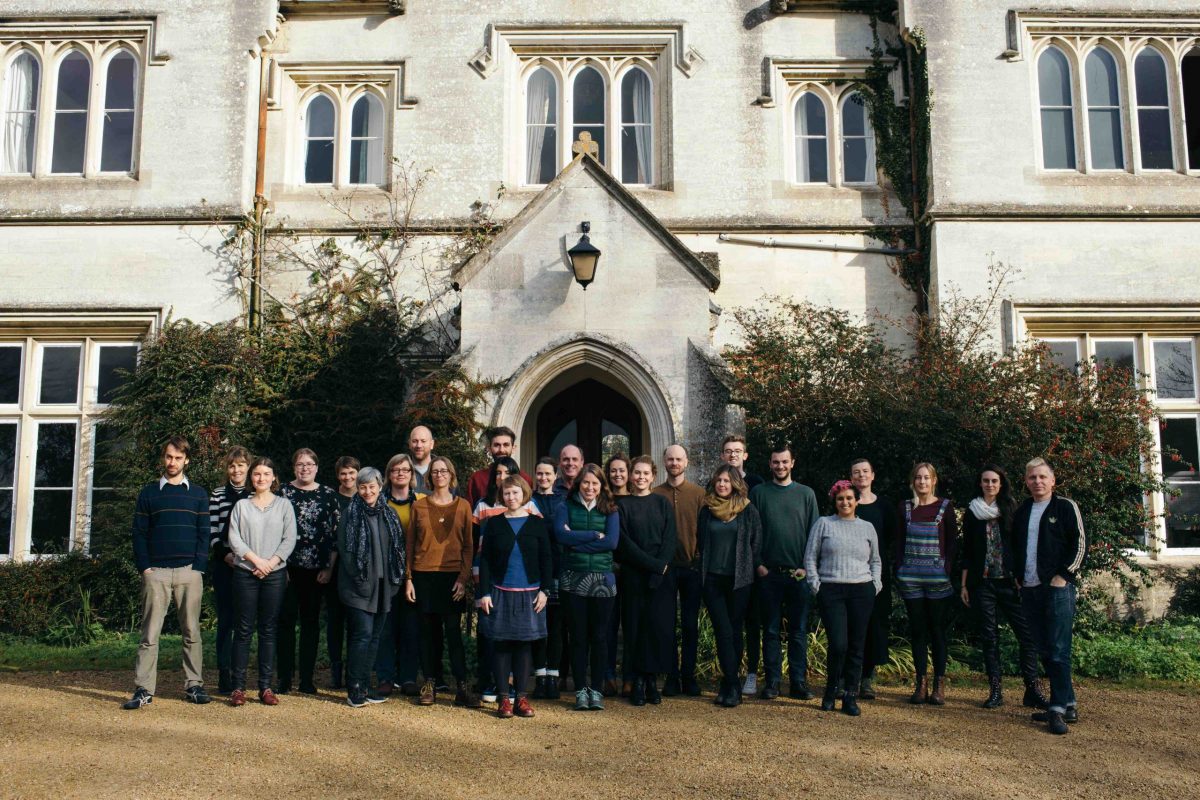The collectivism of sustainability

Artsadmin’s Green Team Leader, Alex Brown, shares his reflection at the beginning of his journey through the Julie’s Bicycle Accelerator Programme.
To make this story on environmental sustainability relatable to all artists and cultural workers, I’m going to start with an experience that we all know too well, a failed attempt at fundraising. There was a call-out across Artsadmin to donate tombola prizes as part of a recent green fundraising quiz and I proposed to make a donation on the abstract of climate chaos therapy. I don’t have any experience in therapy and without wanting to diminish professionalism in that field, I thought I might be able to get somewhere through using live action role-play (larp) techniques. And yet, even as the leader of the green team and some experience in larp design, I was utterly defeated and depressed that I couldn’t offer a performative answer to what should be a really necessary part of navigating how we relate to and experience the anthropogenic destruction of the environment.
As I fast-forward a couple of weeks to the first part of Julie’s Bicycle Accelerator Programme, a residential course in advanced sustainability, I was faced with a few indicators as to why I couldn’t do it alone. On the first evening, the environmental philosopher Glenn Albrecht summed up exactly what I’d experienced. In not being able to describe or alleviate the complex beast of climate chaos, we can’t articulate our true feelings on the subject and what our place in the world might be. Rather than be restricted by this, he has used it as an opportunity to create around 30 new words mostly framed around the concept of psychoterratica, the conceptual framework of earth-related mental health or psyche. The main focus of the talk was on solastalgia, the phenomenon of losing a sense of identity based on place and belonging when home environments have been negatively transformed or even destroyed. Those returning home after a flood or tsunami will undoubtedly feel grief upon seeing destruction of a loved environment, or feel ‘nostalgia for solace’. To me this felt like an incredibly powerful concept that resonated further through the appropriate syntax; I knew it connected to my desire for environmental therapy but I wasn’t entirely sure of a response – hopefully the programme might help me formulate one.
The Accelerator Programme has brought together Artsadmin and Bow Arts to collaboratively develop a project over 18 months on sustainable artist process and production, with particular focus on circular economy. We are one of ten organisations and groups selected by Julie’s Bicycle to lead the arts and cultural sector by developing ideas around conceptual frameworks of sustainability, firstly by using our own organisations as experimental testbeds, and then sharing this knowledge with the wider sector and beyond. At a point in time where the UK’s consumption alone would need the resources of 3 earth-sized planets to sustain ourselves in to the future, we have to be brave in order to radically rethink how we organise society around a new set of values. Values that through collective creativity and imagination offer a hopeful vision of living and working towards an era of post-growth.
I wish that everyone could have experienced those 3 days in the way that I did and I’m currently deliberating the best way to share it with my colleagues. The topics were thought-provoking, challenging and inspiring. But what mattered to me the most was the way in which people connected through sustainability and the sense of community; centred on sharing, compassion and radical ambition for change.
Through the individualised norms of a late-capitalist society, competition has an unnatural tendency to supersede more positive values. When it comes to a sustainable future, the urgent action required means that collectivism has to be prioritised in order to reach our goals. Compassion, collaboration and sharing, empowerment and agency through direct democracy all seem to be integral to imagining what our alternative future should look like. The discussion on the course of the wider issues, the opportunity to share own individual learning and successes, to have an individual identity within a larger collective whole, all felt like the beginning of the solution created by the problem itself. Maybe as communities are forced to come together in what we collectively share – our environment – it can be the basis for a wider societal shift in how we redefine our values. In this tiny microcosm of the world it felt like this was being achieved- how this transfers to the rest of the sector and then society, is the incredibly ambitious task in hand.
We have to be prepared to try new ways of thought and action and not be fazed if there isn’t an immediate success. Experimentation with the power of creativity, imagination and learning from what didn’t work so well requires drastic discussion and reflection in order to achieve. This seems at-odds with dwindling funding for the arts and a tendency towards instrumentalised policy making but – if it’s not the arts sector that shouts to the rest of the world that climate chaos needs urgently addressing – then who else?
At this point there’s undoubtedly some assumptions that need unpacking, and I don’t have all the answers yet but by asking the right questions with a motivated curiosity throughout the 18-month process of the Accelerator programme, I believe that there’s an opportunity to inspire some amazing change. To revert back to the collective climate chaos therapy of the beginning and my reflections on what that could be, I’m afraid to say that it doesn’t exist. From what I’ve learned in the last week from the Accelerator programme and factoring in my own reflections: the only collective therapy is collective action.
Find out more about the Julie’s Bicycle Accelerator programme.
For out more about Artsadmin’s work on the environment.
